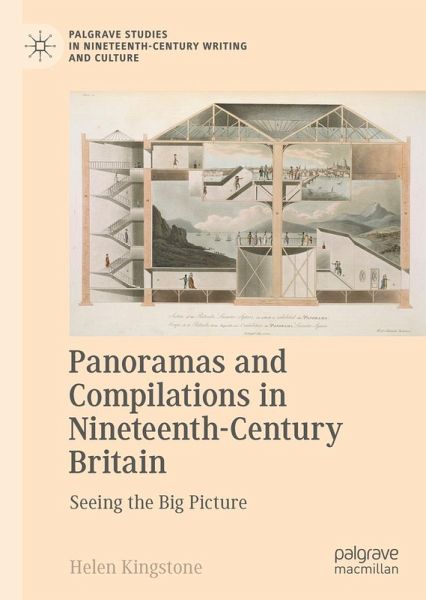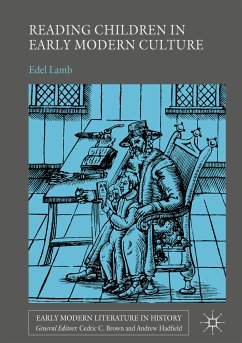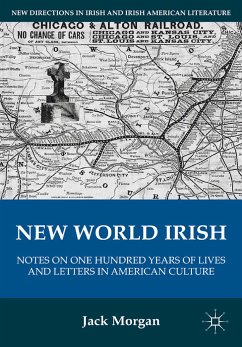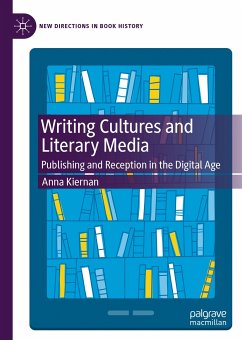
Panoramas and Compilations in Nineteenth-Century Britain (eBook, PDF)
Seeing the Big Picture
Versandkostenfrei!
Sofort per Download lieferbar
96,95 €
inkl. MwSt.
Weitere Ausgaben:

PAYBACK Punkte
48 °P sammeln!
This book shows how in nineteenth-century Britain, confronted with the newly industrialized and urbanized modern world, writers, artists, journalists and impresarios tried to gain an overview of contemporary history. They drew on two successive but competing conceptual models of overview: the panorama and the compilation. Both models claimed to offer a holistic picture of the present moment, but took very different approaches. This book shows that panoramas (360° views previously associated with the Romantic period) and compilations (big data projects previously associated with the Victorian ...
This book shows how in nineteenth-century Britain, confronted with the newly industrialized and urbanized modern world, writers, artists, journalists and impresarios tried to gain an overview of contemporary history. They drew on two successive but competing conceptual models of overview: the panorama and the compilation. Both models claimed to offer a holistic picture of the present moment, but took very different approaches. This book shows that panoramas (360° views previously associated with the Romantic period) and compilations (big data projects previously associated with the Victorian fin de siècle) are intertwined, relevant across the entire century, and often remediated, making them crucial lenses through which to view a broad range of genre and forms. It brings together interdisciplinary research materials belonging to different period silos to create new understandings of how nineteenth-century audiences dealt with information overload. It argues for a new politics of distance: one that recognizes the value of immersing oneself in a situation, event or phenomenon, but which also does not chastise us for trying to see the big picture. This book is essential reading for students and scholars of nineteenth-century literature, history, visual culture and information studies.
Dieser Download kann aus rechtlichen Gründen nur mit Rechnungsadresse in A, B, BG, CY, CZ, D, DK, EW, E, FIN, F, GR, HR, H, IRL, I, LT, L, LR, M, NL, PL, P, R, S, SLO, SK ausgeliefert werden.












